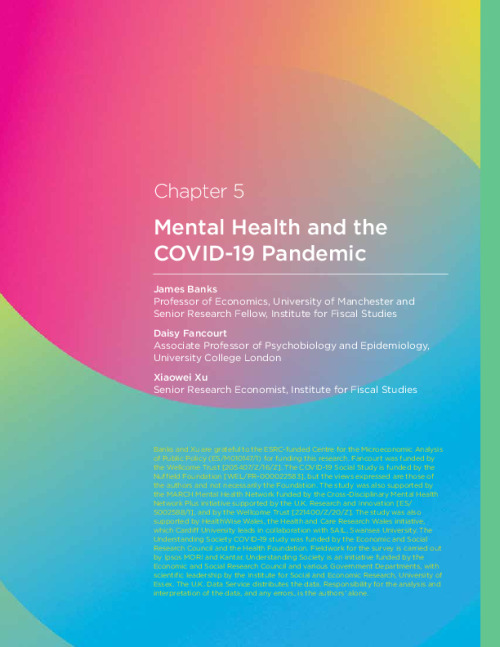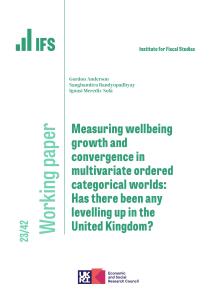From the outset, it has been clear that the potential mental health effects of the COVID-19 pandemic and the various physical distancing, social restrictions, and stay-at-home related policies introduced in response to it, would be one of the most important challenges of the pandemic. Mental health is a key component of subjective well-being in its own right and is also a risk factor for future physical health and longevity,1 which will be a leading indicator of the future, indirect long-run health consequences of the pandemic. Mental health will influence and drive a number of other individual choices, behaviours, and outcomes.
This paper summarises and discusses the emerging evidence on the mental health consequences of COVID-19. Our focus is on negative mental health consequences, such as depression and anxiety, and does not cover life-satisfaction more broadly. Analysis of factors such as social cohesiveness and sense of community, which may relate to positive mental health, are discussed in Chapter 6 of this report. Additionally, it is worth noting that the evidence we discuss here relates only to adults and almost entirely to adults in wealthy industrialised countries, with a strong focus on the U.K. and the U.S. There has been less evidence emerging outside of these domains to date, but as new data become available, these will be important avenues for investigation.
A consistent finding of the rapidly emerging evidence discussed here is that the COVID-19 pandemic has been associated with a substantial rise in symptoms of mental ill-health. In the months following the initial outbreak and lockdown, however, trajectories improved. There is still much uncertainty surrounding the pandemic's second and third waves and how the associated lockdowns of economic and social activities will affect mental health, including the pandemic's long-run consequences on mental health trajectories and mental health services. In keeping with other consequences of COVID-19, the pandemic has also appeared to increase inequalities in mental health, both within the population as a whole and between demographic groups.











